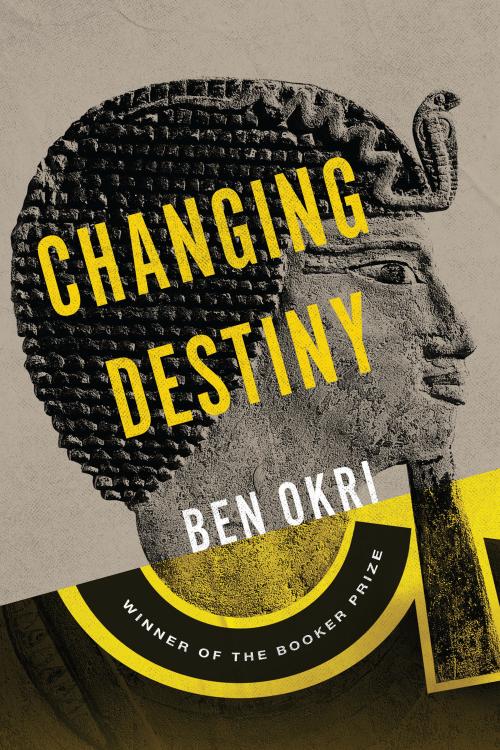Introduction
What makes us human?
This play, Changing Destiny, takes its life from a 4,000-year-old poem from ancient Egypt. The poem is called Sinuhe. There are some who see the poem as the unknown precursor of many legends that are part of the world’s narrative tradition. But the poem, composed during the Middle Kingdom, a period considered the height of ancient Egyptian literary culture, and unread for three-and-a-half millennia, retains an uncanny ability to speak to our times. It is this quality that makes it fascinating.
Anyone who has an abiding interest in ancient Egypt would see it as part of the history of African civilizations. There seems to have been concerted attempts to separate ancient Egypt from Africa. Here we have a civilization conceived on an exalted plane, but whose most famous literary text is about identity, immigration, social disorder, the mystery of power, changing fortunes, and the inexplicability of the deep motives of our actions. In a strange way, Sinuhe foreshadows Hamlet. In its meditation on the nature of exile and homecoming, it foreshadows The Odyssey.
A casual encounter with Kwame Kwei-Armah at an event about Mandela led to a conversation about Sinuhe. The discovery of a mutual interest in this poem led to the realization that there was something intrinsically dramatic about the poem, and that it would make a striking play that resonates powerfully with our times.
The writing began in the spring of 2019; other drafts were written during the long lockdown. What began as a play about power, the ancient world, and immigration, became focused on the curious destiny of Sinuhe. The play absorbed, in the indirect way these things do, many of the underlying currents of our times. It opens with conspirators plotting to assassinate a toxic leader, then it delves into the condition of exile and immigration. But at its heart is something that has fascinated us since the earliest days of civilization: the mystery of what makes us human. What are our constituent parts, what are we made of, what is it that is most authentic about us, and what is it in us that we sacrifice on the relentless path of survival and achievement?
Like all ancient cultures, the ancient Egyptians believed that human beings are composed of two selves, which they roughly designated the BA and the KA. The metaphysics of these terms are too complex to go into here, but they are a fundamental aspect of what we are. In Hinduism, in Christianity, in most African traditions, these aspects that make up human beings have their clear designation. The ancient Greeks, according to Plato, saw that we are body, pnumena, and spirit. The Chinese use the word Chi to designate a mysterious force in us that the Igbos use to refer to one’s personal spirit. This concept runs through most cultures. It is worth noting that the scribe in whose tomb the papyrus containing Sinuhe was found also transcribed a poem called “A Man’s Dialogue with His Soul.”
In Changing Destiny there is the idea that one can sin against one’s spirit, that one can perform acts that separate one from one’s essential, or authentic, self. In our time, we are just as haunted by the idea of authenticity. We celebrate our heroes and heroines to the degree that they live out their authentic choices.
In the original poem there is an enigma as profound and perhaps more baffling than the enigma at the heart of Hamlet or Oedipus Rex. With Hamlet it is the conundrum of the ghost and its effect on Hamlet’s constant delays in exacting revenge for the murder of his father. With Oedipus Rex it is the enigma of the immutability of destiny itself. With Sinuhe, it is the question of a mysterious flight and an assumed guilt and the impact this has on the rest of his life. The assumption of guilt when one has not done the thing for which one feels guilty is a very modern phenomenon.
Kafka is perhaps its greatest modern exponent. Sinuhe anticipates Kafka by nearly 4,000 years.
Such a work hints at something universal about the human condition. Since the dawn of time we have known what it is like to have to find a way to live and thrive under a sky different from the one under which we were born. We have known what it is like to make existential decisions that alter, forever, the tone and nature of our lives. The eternal questions pursue us whether we are at home or are exiles. We all feel in our blood an attachment to our lands. We all feel that something is lost in us when we are unduly severed from it.
Literature makes us aware of the invisible umbilical cords that connect us to the universe, to the land, and to our communities. In both the ancient and the modern world the nature of home is complex and undergoes constant mutation. Historical events alter all things. A single war can shift the configuration of what we call home. Today you are free, but tomorrow finds you a refugee.
The fugitive nature of human certainties gives us cause to wonder. The urge to alter one’s destiny, in a world over which one has little control, is as old as humanity itself. Changing Destiny, taking the poem as its starting point, explores these themes. But it leaps off into its own discoveries.
A silent mantra runs through this production. It emerged in the close collaboration with Kwame Kwei-Armah and the actors. Within the lightness of the lines are sublimated worlds.
All is real, all is dream. A person who fled for reasons they did not know, arrives somewhere they did not expect, where the synthesis which is at the core of a great civilization is at the root of a new genesis.

